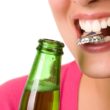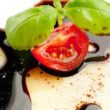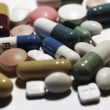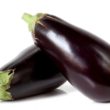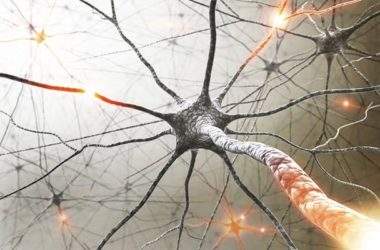There are a handful of reasons why a woman undergoes hysterectomy — a surgical procedure which involves the removal of some or all parts of the uterus. Some of them include medical conditions such as uterine fibroids, chronic pelvic pain, adenomyosis (thickening of the inner lining of the uterus), endometriosis (the growing of endometrial tissue outside the uterus), abnormal vaginal bleeding, uterine prolapse, and cancer of the ovaries, cervix or uterus.
Regardless of the reason for having a hysterectomy, a woman who has undergone it successfully needs to focus on one very important matter: recovery.
Just like with any other type of surgical procedure, it’s a must for a woman like you to regain strength to help the body bounce back from the operation. Having a healthy diet is essential because it will greatly accelerate your journey towards complete recovery. The following are some of the foods you should have plenty of after a hysterectomy:
Whole Grains
Complex carbohydrates in whole grains give your body the energy it needs to recover quickly from a hysterectomy. What’s more, whole grains are packed with dietary fiber that helps promote regular bowel movement. It’s not uncommon for individuals who just underwent surgery to suffer from constipation due to lack of physical activity. By loading up on foods packed with dietary fiber, bowel movement can be normalized in no time.
Almonds
Other than being packed with good fats that give your body the energy it needs to heal, almonds are also loaded with vitamin E. This nutrient is essential for skin health, allowing the incision to heal faster. Other foods that contain vitamin E include tofu, spinach, avocado, shellfish and broccoli.
Beans
Various types of beans are excellent sources of iron, a mineral necessary for the production of red blood cells. Losing some amount of blood happens after undergoing the knife, and the consumption of iron-rich foods is crucial. Some beans containing the most iron include soybeans, lentils, chickpeas, kidney beans, pinto and lima beans.
Lean Meats
The consumption of lean pork, beef and poultry is highly recommended after a hysterectomy or any other type of surgery. Your body requires a lot of protein to heal skin and muscles quickly. By consuming lean meat cuts, you are supplying sufficient amounts of protein to nurse yourself back to health. If you’re trying to steer clear of meats, legumes, quinoa, nuts, flaxseeds, chia seeds, sunflower seeds, tofu and non-dairy milk are wonderful sources of protein.
Citrus Fruits
Oranges, lemons, pomelos, tangerines, limes and grapefruits are all loaded with vitamin C. This nutrient is very helpful in repairing skin. What’s more, vitamin C is also necessary for bolstering your immune system. One of the complications of having any type of surgery is wound infection, and it’s important for your immune system to be in tip-top shape.
Sweet Potatoes
Just like vitamin C in citrus fruits, vitamin A in sweet potatoes is essential for skin repair. Vitamin A is also a contributor to a strong immune system. Squash, carrots and dark green leafy vegetables are some other great sources of vitamin A.
Seafood
The consumption of seafood is recommended for someone who just had undergone surgery. Aside from containing protein that’s vital for muscle repair and healing, seafood is also rich in zinc. This mineral is vital for energy and healing. Lobsters, crabs and fins are good sources of zinc.
Yogurt
All of the painkillers and antibiotics you take after a surgical procedure can leave an imbalance of microorganisms in your gut. Having good bacteria in the intestinal tract is necessary for a strong immune system, something which can help keep infections at bay. Eating yogurt helps restore the normal balance of bacteria in your gut. Other excellent sources of good bacteria include sauerkraut, miso soup, tempeh, pickles, kimchi, kombucha and kefir.
Fluids
Consuming lots of fluids helps your body metabolize all the vitamins and minerals in food. Also, it helps ward off constipation, a problem that is likely to bug you right after having a hysterectomy. Drinking 8 to 12 glasses of water daily is recommended. The consumption of fruit and vegetable juices boosts your intake of fluid as well as health-giving nutrients.
It’s not unlikely for you to have poor appetite after having a hysterectomy. Always bear in mind that eating allows your body to get everything it needs for energy and healing. Aim to eat something nutritious every 2 to 3 hours even if you don’t feel like consuming anything at all. It will also help if your family and friends eat with you during mealtimes.




